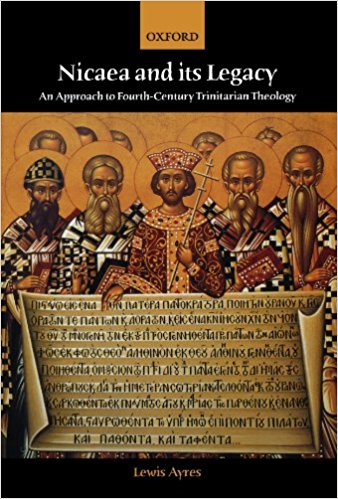(5) Biblical Authority after Babel proposes a distinction of importance among doctrines, so that not every doctrinal difference need produce a schism or a division among Protestant churches. Level-one teachings, dogmas, which a follower of Jesus always has to believe, have to do with “identifying the main persons of the gospel story” (p. 205). Level-one doctrines answer questions of who and what, whereas level-two doctrines “typically respond to questions of how” various parts of the gospel story were accomplished (p. 206). But this distinction seems difficult to maintain on these terms. Trinity is a level-one doctrine, according to Vanhoozer. But why should it be? Why can’t a person admit that salvation is a work of the Father, Son, and Holy Spirit while not subscribing to the trinitarian metaphysics of Nicaea? Wouldn’t the Nicene creed sooner fall into the domain of “how”, namely how these three figures are involved in our salvation, or how they relate to each other, etc.? This invites unitarians and others into the fold of mere Protestant Christianity, radically disjointing Protestant unity. On the other hand, he lists questions of atonement theology (“How does Jesus’s death on the cross save sinners?”) as a level-two doctrine. But can you affirm that there was an act of salvation at all without specifying what the danger was and how it was avoided? This pulls atonement theology into level-one, once again making mere Protestant Christianity ripe for schism.
(6) Vanhoozer speaks about Trinitarian theology throughout his book as if it were an obvious conclusion to come to by simply reading the Scripture. He doesn’t justify Trinitarian theology; it is a maxim. Likewise, he treats Scripture as a complete object, the word of God, Old and New Testaments included, without paying any attention the causal origins of the Scripture and its inextricable connection to the Church that produced it. It comes off like trying to change the rules in the middle of the game to one’s advantage: traditions and councils and the rest are now fallible, even if valuable; Scripture alone is the ultimate authority, and I (Luther, Calvin, whoever) am aware that the Catholic Church has been misreading it very badly. What of unitarians who do not think that trinitarianism is the conclusion you come to by a close reading of Scripture? They have an answer for every prooftext you bring up. Or how do you know what books count as Scripture at all? The Bible didn’t come with a table of contents. Some source outside of the text had to recognize what was Scripture and what wasn’t; why is that source no longer infallible when it comes to interpreting the texts it assembled and recognized as Scripture?
(7) I think the issue of baptism produces a significant problem for Vanhoozer’s project. Is the baptism of infants valid or not? Are adults who were baptized as infants incorporated into the body of Christ or not? Should they be admitted to partake of the Lord’s Supper? If baptism requires faith on the part of the person being baptized, and if baptism actually incorporates us into the body of Christ as Scripture teaches, then Baptists cannot admit Presbyterians, Catholics, and the rest as fully incorporated into the body of Christ. Presbyterians should be baptized again as adults if they are really to be part of the body of Christ. On the other hand, if they are incorporated, then this requires a rethinking of the mechanics of baptism — and the exegetical case for infant baptism is a far cry from the kind of explicit, black-on-white proof that most Protestants seem to require in defense of some doctrine or practice. The Romanian Pentecostal churches in which I grew up require that Orthodox, Catholics, and others who were baptized as infants be rebaptized as adults before they are admitted to participate in eucharistic fellowship. Are they being sectarian, or is this a first-level issue that has to be resolved? And how could it be resolved in any satisfactory way, except by appeal to tradition: this is what the Church has always done, and refusing the validity of infant baptism consigns to the outer darkness innumerable generations of Christians? Now tradition is being admitted as an authority again, and this time an apparently quite weighty one
For these reasons, then, I am not convinced by Vanhoozer’s retrieval of the solas in Biblical Authority after Babel
Steven Nemes teaches philosophy as an adjunct professor at Grand Canyon University. He completed a B.A. in Philosophy at Arizona State University and M.Div. at Fuller Theological Seminary. In September 2017 he will be beginning his Ph.D. at Fuller Theological Seminary, studying under Oliver Crisp.
For more on biblical hermeneutics see: Jesus Didn’t Call God Daddy
Please also make a donation to this blog through the button on the upper right side of this page to help keep it going.
Stay in touch! Like Cosmos the in Lost on Facebook:













